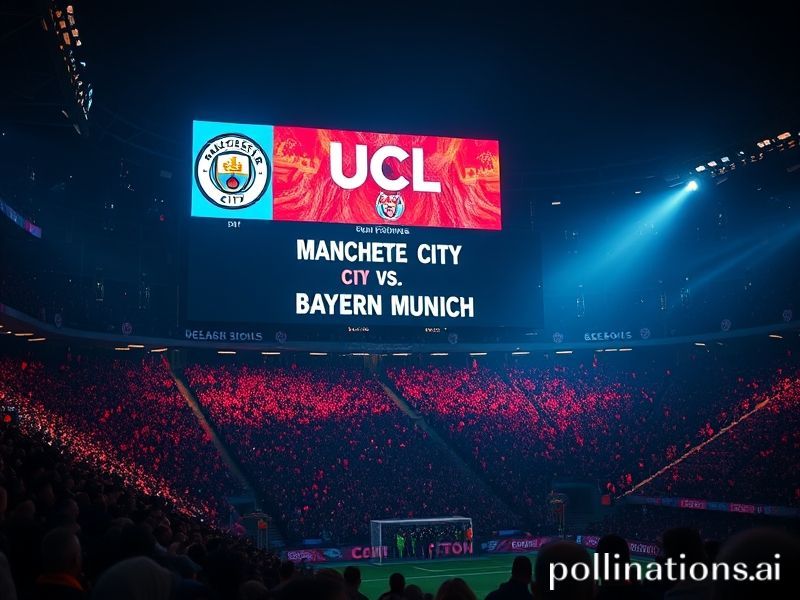UCL Scores: The Viral Ranking System That’s Redefining ‘Cool’ Cities
### The UCL Scores That Have the Internet in a Frenzy: Why Everyone’s Talking About These Numbers
In the vast, ever-shifting landscape of internet culture, trends come and go faster than a TikTok dance challenge. But every now and then, something emerges that captures the collective imagination of the global digital community. Enter: UCL scores. If you’ve spent any time on social media lately, you’ve probably seen these mysterious numbers popping up everywhere, from Twitter threads to Instagram stories. But what exactly are UCL scores, and why are they suddenly the talk of the town?
#### What Are UCL Scores?
First things first: UCL stands for the University College London, a prestigious institution in the UK. But the “scores” part is where things get interesting. UCL scores are essentially a ranking system that measures the “coolness” or cultural impact of various cities around the world. The rankings are based on a variety of factors, including the presence of creative industries, cultural institutions, and even the number of hipster cafes (okay, maybe not that last one, but you get the idea).
The scores are part of a broader study by UCL’s Creative Economy Research Initiative, which aims to quantify the cultural and economic value of cities. The idea is to highlight which urban hubs are leading the way in creativity, innovation, and cultural influence. Think of it as a report card for cities, grading them on their “cool factor.”
#### Why Are UCL Scores Trending Globally?
So, why has this academic study suddenly become a viral sensation? For starters, it’s the perfect storm of data-driven analysis and internet-friendly content. The rankings are easy to digest, shareable, and ripe for debate. People love to argue about which cities are the “coolest,” and UCL scores provide a seemingly objective way to settle those debates (even if the methodology is open to interpretation).
But beyond the sheer fun of arguing about city rankings, there’s a deeper cultural significance to the trend. In an increasingly globalized world, cities are competing to attract talent, investment, and tourists. Cultural capital is a major part of that competition, and UCL scores tap into that by offering a snapshot of which cities are leading the pack in terms of cultural influence.
The trend also speaks to the internet’s obsession with rankings and lists. From “best places to travel” to “most influential celebrities,” we can’t get enough of seeing where we (or our favorite cities) stack up. UCL scores are just the latest iteration of this phenomenon, but with a twist: they’re backed by academic research, giving them an air of legitimacy that other viral lists might lack.
#### The Social Impact of UCL Scores
The viral nature of UCL scores has had some real-world implications. Cities that scored highly have seen a boost in tourism and cultural pride, while those that ranked lower have faced scrutiny and calls for improvement. For example, London, which consistently tops the rankings, has seen its cultural institutions and creative industries celebrated even more than before. Meanwhile, cities that didn’t make the cut have been motivated to invest more in their cultural offerings, hoping to climb the ranks in future studies.
The trend has also sparked conversations about what makes a city “cool” in the first place. Is it the number of museums and galleries? The vibrant nightlife? The presence of major tech companies? The debate is ongoing, and UCL scores have provided a useful framework for discussing these questions.
#### What Makes UCL Scores Significant?
At their core, UCL scores are significant because they highlight the importance of culture in shaping our world. In an era where data and analytics dominate decision-making, it’s refreshing to see a study that quantifies something as intangible as cultural influence. The scores serve as a reminder that cities aren’t just economic hubs; they’re also centers of creativity, innovation, and cultural exchange.
Moreover, the viral nature of UCL scores shows how academic research can break out of the ivory tower and into the mainstream. In a time when misinformation and sensationalism dominate the internet, it’s heartening to see a trend that’s based on solid research and thoughtful analysis.
#### Conclusion
UCL scores might seem like just another internet fad, but they’re actually a fascinating reflection of our cultural moment. They tap into our love of rankings, our obsession with city life, and our desire to understand what makes certain places special. Whether you’re a proud resident of a top-ranked city or a defender of an underrated urban gem, UCL scores offer a fun and thought-provoking way to engage with these questions.
So the next time you see a UCL score trending on your social media feed, take a moment to appreciate the cultural significance behind those numbers. And who knows? Maybe your city will make the list next time.







